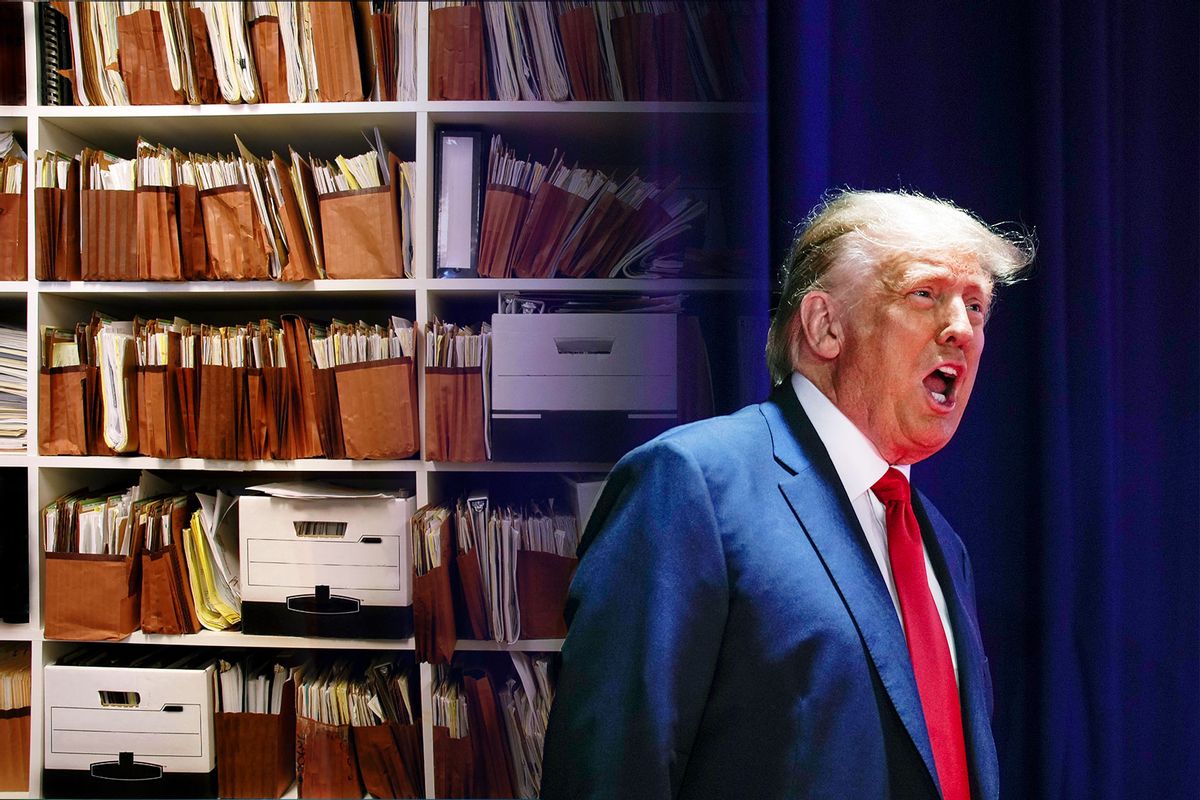Lawyers for former President Donald Trump on Wednesday asked the judge overseeing his classified documents case to reestablish his Mar-a-Lago resort as a "secure facility" where he can discuss classified discovery evidence in the case.
Special counsel Jack Smith's team requested a protective order that would require Trump to only review and discuss classified evidence in one of several highly secure locations run by Florida's federal courts. Trump's lawyers on Wednesday asked Judge Aileen Cannon, the Trump appointee handling his case, to instead allow him to review and discuss the classified evidence at "a previously approved facility at or near his residence," an apparent reference to Mar-a-Lago, according to The New York Times.
Trump attorney Christopher Kise told the judge that re-establishing "the same secure area" would reduce the "immense practical and logistical hurdles and costs" of having Trump travel to one of the sensitive compartmented information facilities, or SCIFs, which are run by the courts.
"Efforts to safely transport and protect President Trump—all of which are required by the Secret Service—cost the United States government and state and local municipalities hundreds of thousands of dollars per visit, which is significantly more than the fixed amount necessary to re-establish the secure area at which President Trump (and his lawyers) were once permitted to discuss classified information," the filing said.
Smith's team last month argued in favor of the SCIFs last month.
"The government is not aware of any case in which a defendant has been permitted to discuss classified information in a private residence, and such exceptional treatment would not be consistent with the law," prosecutors said in a July filing.
Trump's lawyers called the argument "misleading" because of the "uniqueness of President Trump's residence, including that it is in a highly protected location guarded by federal agents that previously housed a secure facility approved for not only the discussion, but also the retention, of classified information."
But the attorneys also acknowledged that the facility was "decertified" in 2021 before Trump was charged with illegally stashing over 100 classified documents at his residence and obstructing government efforts to recover them. Trump pleaded not guilty.
Legal experts expressed alarm over the request.
"This ask by Trump is not only unusual, but basically asks Judge Cannon to make the literal scene of the crime into a SCIF," tweeted MSNBC legal analyst Katie Phang, adding that the "bathrooms at Mar-a-Lago are not SCIFs," a reference to photos in Trump's indictment showing boxes of materials taken from the White House stored in one the resort's restrooms.
We need your help to stay independent
National security attorney Mark Zaid called it a "ridiculous request."
"No way [the government] would agree to provide Trump with lawful method to store or review classified info at location that remains [a] threat, not to mention risks he poses," he tweeted. "And it's not inexpensive to build SCIF. Has Trump even offered to pay for costs?"
Brandon Van Grack, a former DOJ national security official and member of former special counsel Bob Mueller's team, said that it would be "unprecedented" if Cannon granted the request, noting that it does not appear that Trump's lawyers had discussed the feasibility with a classified information security officer.
"What authority would Cannon possibly have to order the government to establish a SCIF anywhere?" questioned former federal prosecutor Elizabeth de la Vega. "A US District Court Judge has no authority to do that."
"The DOJ should oppose this based on [Trump's] track record of complete dereliction with respect to security procedures at Mar-a-Lago," added former U.S. Attorney Harry Litman. "If Cannon approves it notwithstanding, that record, I think it makes a strong case for recusal."
Read more
about Judge Aileen Cannon



Shares